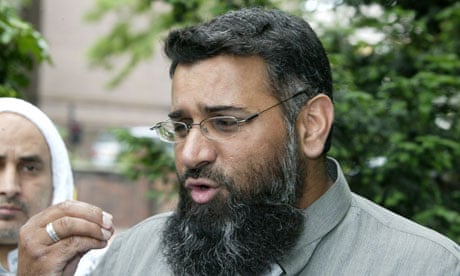Radical speakers such as the Islamist preacher Anjem Choudary should not be banned from appearing on television, the independent reviewer of terrorism legislation said on Wednesday.
David Anderson QC, who reviews the government's anti-terror laws, said it should be up to broadcasters to decide who appears on their channels.
Broadcasters including Channel 4 and the BBC were criticised last week for giving Choudary airtime in the wake of the Woolwich attack and it has been reported that extremist preachers could be banned from television under new powers for Ofcom.
But Anderson said if extremists were banned from television, it would risk sanitising them.
He told BBC Radio 4's PM programme: "Perhaps I'm old fashioned, I'm a great believer in the marketplace of ideas, the good ideas drive out the bad.
"It's important to give these people a hard time and to expose to the audience the sort of things they have been saying when they have not been wearing a tie in the television studio.
"But subject to that, let them be heard, and the risk of not letting these people be heard in all their glory is that you sanitise them, and that people don't actually realise how extreme they are."
Asked if there was an "incitement factor" on television, he said: "If you're talking about Anjem Choudary, various organisations that he has been instrumental in founding have indeed been banned as organisations that promote or encourage terrorism.
"It hasn't happened to him, he hasn't been prosecuted on that basis.
"For someone who is a member of society, free to speak, I think one has got to allow him to speak, one has got to test very severely what he has to say, and one has to discredit his ideas.
"One can think about the high-profile extremists in respect of whom that's been a pretty effective process."
